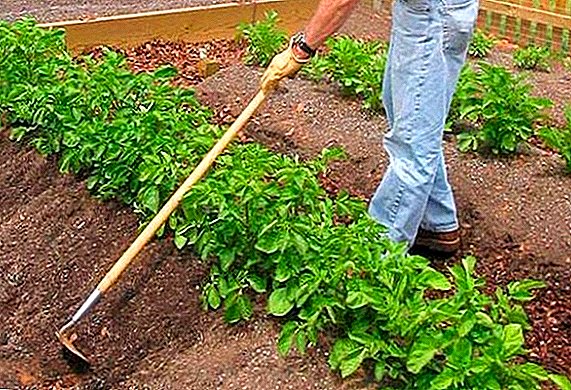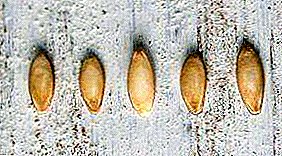 Insects, like many other organisms, are quite often affected not only by bacterial diseases, but also by pests that worsen health and increase mortality.
Insects, like many other organisms, are quite often affected not only by bacterial diseases, but also by pests that worsen health and increase mortality.
Today we will talk about what heat chamber and how it improves insect health. Let's talk about the processing of bees and tell you how to create a unit at home.
Description and principle of operation
To begin with, what is a thermal chamber?
Beginner beekeepers may not realize that insects are often affected by various pests that need to be fought, otherwise you will either lose a significant population, or you will receive a completely sick swarm that is not capable of producing the expected amount of products.
Learn more about drugs used in the field of beekeeping: “Apira” (a drug that facilitates the capture of swarms during the swarming period), “Apimax” (a safe and effective balm, which saves Pasika from infections and parasites) and “Bipin” - (a medicine intended to combat varroa bees).
Thermal chamber - This is a small box that looks like a gas stove in miniature without a burner. It has glass inserts that allow you to observe the process, and the cavity, which is heated and ventilated. Power is produced by electricity.  This device works as follows: after you place a bee frame with insects in it, the camera closes tightly and heats up to 48 ° C. In the process of heating, the intervals between the abdominal rings, where the so-called varroa mite dwells, increase. As a result, the parasite can not keep on the bee and falls down. This process is called "heat treatment of bees from parasites."
This device works as follows: after you place a bee frame with insects in it, the camera closes tightly and heats up to 48 ° C. In the process of heating, the intervals between the abdominal rings, where the so-called varroa mite dwells, increase. As a result, the parasite can not keep on the bee and falls down. This process is called "heat treatment of bees from parasites."
A remarkable feature of the camera is that the bees do not react to this temperature, because it is quite acceptable for them. At the same time, the processing of bees in the chamber also increases their resistance to fungal diseases, and also reduces the percentage of insects affected by viral infections.
Important! Mites after processing must be removed from the camera.
Thermal camera do it yourself
Purchased options are presented in the market in insufficient quantities, and their price forces you to pick up a hacksaw and a screwdriver. Therefore, further we will learn to make a thermal chamber with our own hands.
Materials and tools
You need to start any manufacturing with the purchase of materials and tools. We provide a list of the most cost-effective materials from which you can make the best option for the heat chamber:
- Bars of wood 3x3 cm
- Plywood, 6 and 10 cm thick.
- Screws for wood.
- Screwdriver.
- Saw.
- Silicone glue.
- Glass.
- Incandescent bulbs 60 W each - 4 pcs.
- Electrical cable.
- Power Supply.
- Thermometer.
- A small fan like a cooler in a stationary computer.
 The last item can be changed to the thermostat, but in this case, the total cost will increase.
The last item can be changed to the thermostat, but in this case, the total cost will increase.Did you know? To collect honey on one spoon, two hundred bees must work all day.
Instructions for making
First you need to sketch a drawing that will display the actual size of the device. Since we manufacture a thermal chamber to fit our needs and for a certain number of families, it is worthwhile to set the dimensions convenient for you.
Once you have decided on the length, width and height of the structure, you should proceed to the creation of the frame.
- Cut the bars and form the frame.
- Cut the plywood 6 mm and fasten it to the walls with a screwdriver.
- Take a piece of 6 mm plywood and make it round or square cut-out, which will serve as a viewing window.
- Fasten the glass on the outside of the cut, while using silicone glue. You need to glue it in such a way that the cut-out in plywood, which is less than glass, is under this same glass. It is not safe to glue from the inside, as any glue can release potentially hazardous substances when heated.
- Fasten the plywood with glued glass to the top of the heat chamber.
- We make bottom from thick plywood.
Learn how to build with your own hands: a beehive, a beehive of Dadan, an alpine hive, a beehive of Varre, a multi-tiered beehive, and also read how to build a pavilion for bees.
Next we need to put the lamp and fan. Incandescent bulbs will serve as a heating element, so you need to put them closer to the top. The fan must be placed at the bottom, otherwise many insects that will fall into its blade will die.  Take 4 lamps and mount in the upper corners. The power wire can be pushed through the ring and out in the place where the door will be closed, or make an additional entrance with a drill.
Take 4 lamps and mount in the upper corners. The power wire can be pushed through the ring and out in the place where the door will be closed, or make an additional entrance with a drill.
Did you know? Bees need beeswax in order to fix honeycombs with honey at a certain place.
At the last stage, we place the thermometer so that it is at the same distance from all the lamps and at the same time is clearly visible in the viewing window.
As for the door, its frame is made of wooden bars, and then plywood is placed on the screws. The door hangs on good hinges and closes the latch.
The heat chamber for the treatment of bees with their own hands is ready.
How to conduct heat treatment
The most important and crucial stage is the treatment. It is important to understand that if you do not use a special temperature regulator, then you should not move away from the camera in any case, otherwise you just “fry” your bees.
The first thing that needs to be said is that the treatment is carried out without the bee's. First, if the uterus is present, the bees will gather in a ball around it and, thus, the temperature between them will increase by a few extra degrees; secondly, the uterus is rarely affected by the tick, so it does not need treatment. Processing time should be about 12 minutes. If it rises to 18, then insects that have a full intestine, or hungry individuals may die. Therefore, if time cannot be reduced, then before processing it is necessary to force the bees to collect food into the goiter with the help of smoke, or to give an opportunity to fly a little so that the intestines are empty.
If you carry out the treatment when the ambient temperature drops below 11 ° C, then you need to preheat the grids to 18 ° C, otherwise the tick will remain on insects. At temperatures below 11 ° C, the tick falls into anabiosis and is not vulnerable to high temperatures.
Important! Handle the drone can not, because it will die from high temperature.
This concludes the article on how to make a camera and properly process the bees. Do not forget that this procedure is stressful, so you can not avoid losses among the bee population, which is normal. Try to learn from the experience of other beekeepers, to allow a minimum of errors.












